公式サプライヤー
公式および認定ディストリビューターとして200社以上の開発元から正規ライセンスを直接ご提供いたします。
当社のすべてのブランドをご覧ください。
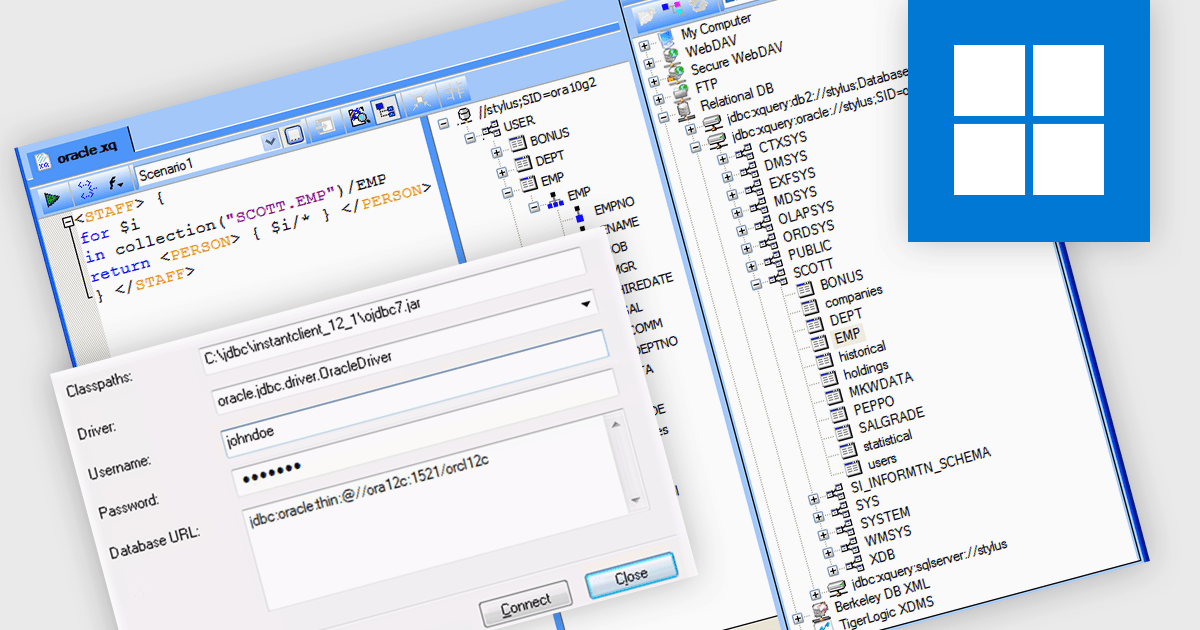
Oracle support in an XML tool refers to the tool’s ability to integrate with Oracle databases for handling XML data, enabling users to query, transform, and validate XML content stored within Oracle systems. This includes compatibility with Oracle’s native XML DB features, such as XMLType columns and XQuery support, allowing developers to efficiently manage structured and semi-structured data directly within the database environment. This improves data interchange and storage, reducing the need for external processing and improving performance and maintainability when working with complex data models in enterprise applications.
Several structured document tools support Oracle, including:
For an in-depth analysis of features and price, visit our structured document tools comparison.
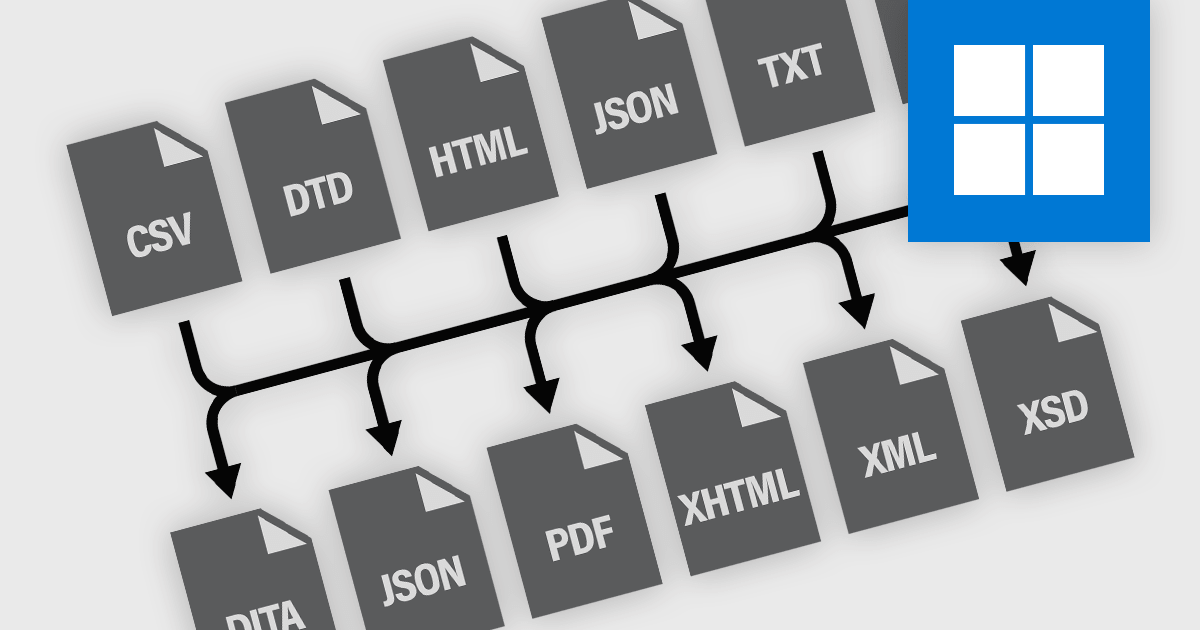
Structured document tools are essential for transforming and managing data across various markup and data interchange formats. These tools facilitate the conversion of documents between formats like XML, JSON, HTML, and Markdown, enabling interoperability between systems, applications, and standards. Output features are designed to ensure the transformed content retains its semantic meaning and structural integrity, while supporting downstream tasks such as validation, display, or storage in databases. By improving these conversions, structured document tools play a crucial role in data integration, documentation processes, and digital publishing.
Common features include:
For an in-depth analysis of features and price, visit our Structured Document Tools comparison..
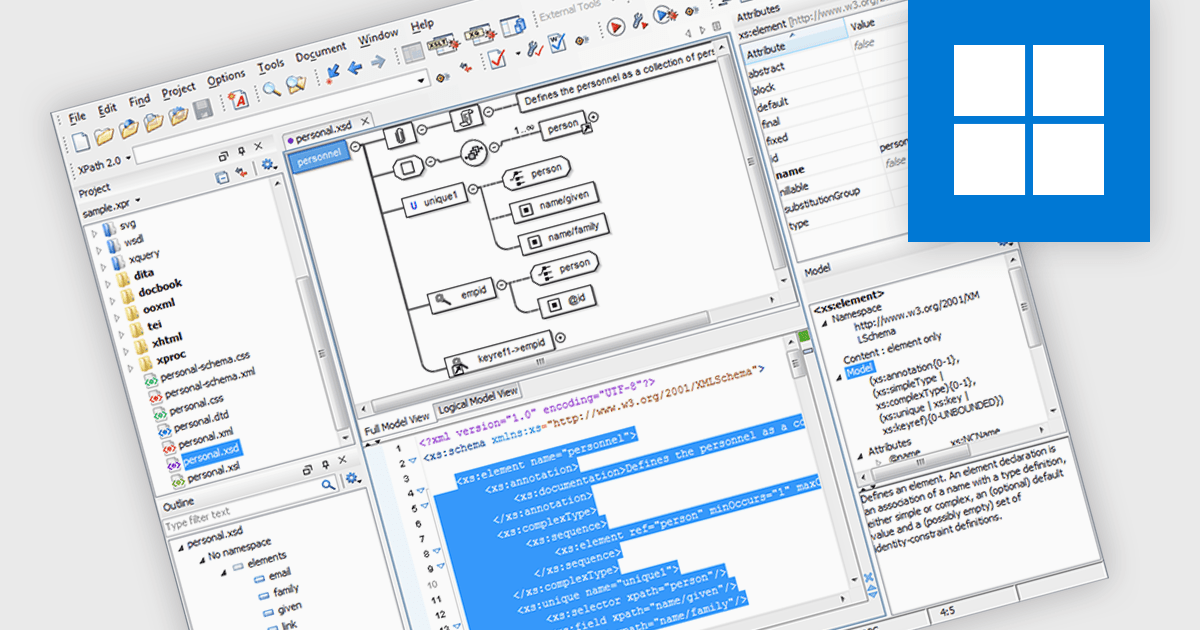
XML Schema (XSD) to DTD conversion refers to the process of transforming XML Schema Definition (XSD) documents, which define the structure and data types of XML files using XML-based syntax, into Document Type Definitions (DTD), which use a more limited, non-XML syntax for similar purposes. This conversion capability allows developers to bridge compatibility gaps between systems or tools that rely on different schema formats, particularly when integrating with legacy systems or validating XML documents against older standards. By automating this conversion, XML tools simplify workflow, reduce manual errors, and enhance interoperability across XML-based applications.
Several Structured Document Tools offer XML Schema (XSD) to DTD conversion including:
For an in-depth analysis of features and price, visit our comparison of Structured Document Tools.
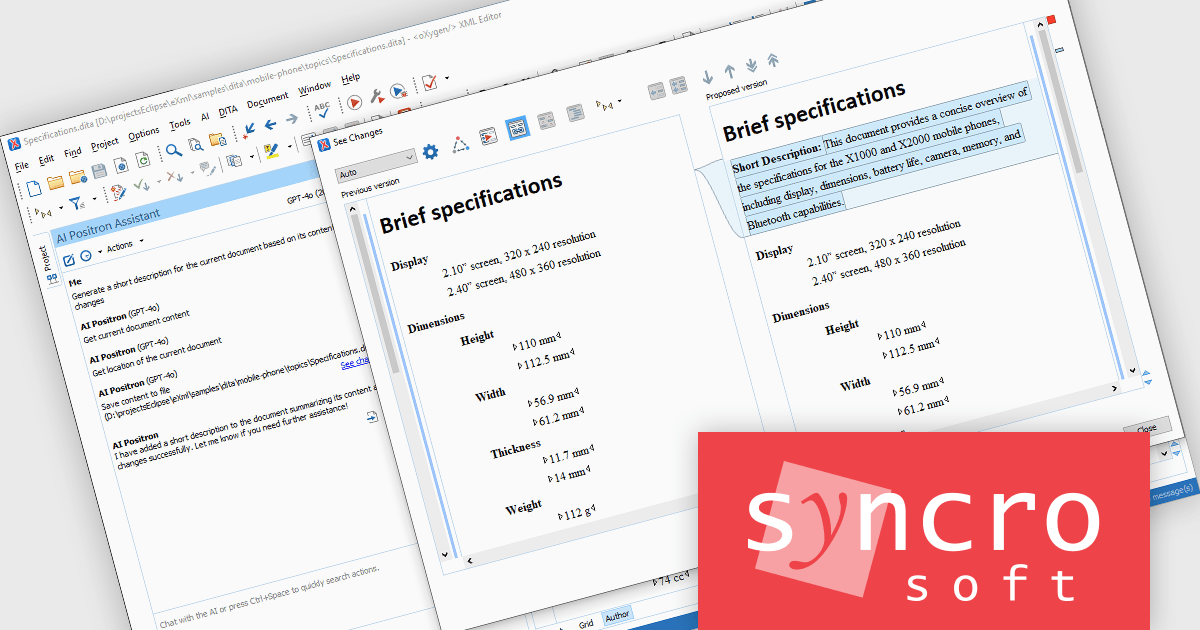
The Oxygen AI Positron Assistant Enterprise Plug-in by Syncro Soft is an Artificial Intelligence powered extension for the Oxygen XML editing suite designed specifically for technical writers. It leverages OpenAI, Microsoft Azure OpenAI Service, or Anthropic Claude to automate repetitive tasks, improve content structure and flow, and generate draft text based on user prompts. The plugin integrates seamlessly within the Oxygen environment, offering visual comparisons of suggested changes and allowing developers to control the creative process through ongoing prompts and revisions.
The Oxygen AI Positron Assistant Enterprise V5.0 release adds the ability to create new files or to update existing files while keeping you in control. You can view the changes in the built-in visual file comparison tool and choose to accept or revert them, ensuring that you maintain oversight over your documents.
To see a full list of what's new in V5.0, see our release notes.
Oxygen AI Positron Assistant Enterprise is licensed per Named user and is available as a Timed License with support and maintenance subscription. See our Oxygen AI Positron Assistant Enterprise licensing page for full details.
Learn more on our Oxygen AI Positron Assistant Enterprise product page.
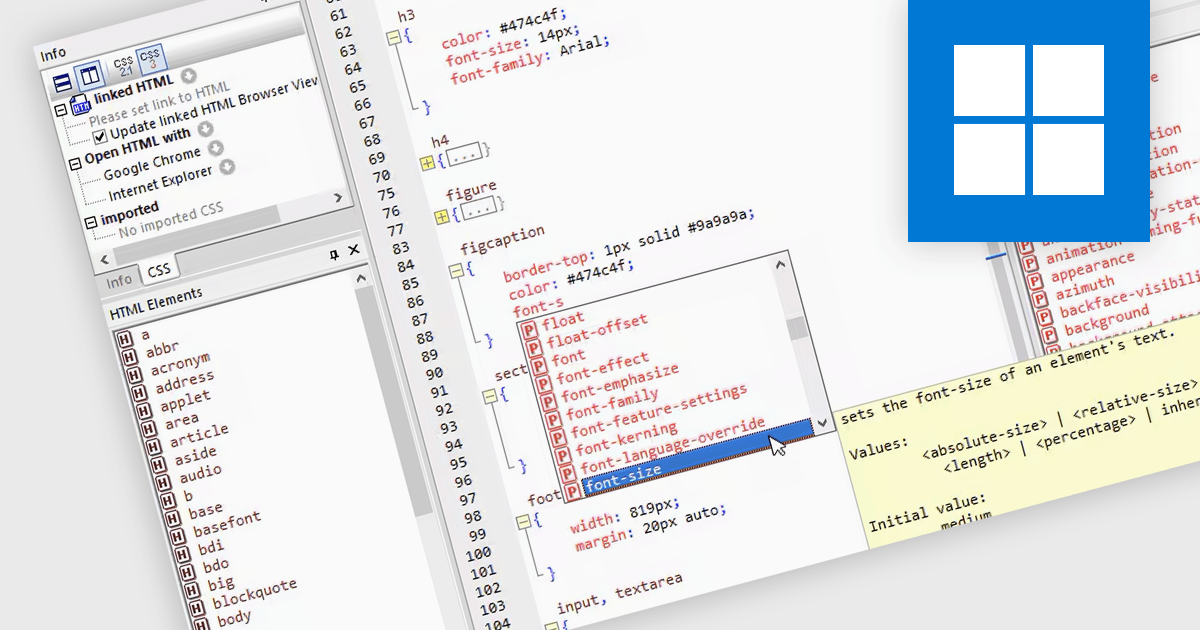
CSS compliance in a Structured Document Tool refers to the tool's ability to accurately interpret and apply Cascading Style Sheets (CSS) specifications to control the presentation of structured content such as XML, HTML, or other markup-based documents. This ensures that styles, layouts, and formatting defined via CSS are consistently rendered across different output formats, including web, PDF, and print. For software developers, CSS compliance simplifies the design process by enabling the reuse of standard web styling rules within document workflows, reduces the need for custom styling logic, and enhances interoperability with other systems and tools that rely on CSS. It also supports maintainability by allowing style changes to be managed centrally through CSS files, promoting efficiency and consistency throughout the content lifecycle.
Several Structured Document Tools offer CSS compliance including:
For an in-depth analysis of features and price, visit our comparison of Structured Document Tools.